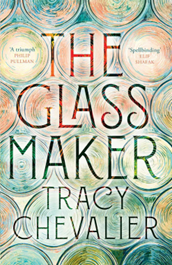The Familiars by Stacey Halls
Stacy Hall's debut novel, The Familiars, casts a spell on the reader. A fictionalised account of the Pendle witch trials in 17th-century Lancashire, The Familiars is an insightful account of the brutal way women were treated by a patriarchal society heavily influenced by magic and the supernatural. Magic was used to supress, villainise and even murder women. Drawn from real-life figures, Hall's novel tells the story of Fleetwood Shuttleworth, a 17-year-old pregnant noblewoman who finds herself caught up in the trials when her midwife, Alice Gray, is accused of witchcraft. Married at 13 (don't forget this was an everyday reality for early modern women), and three miscarriages later, Fleetwood has enlisted Alice's help to deliver a healthy baby. To make things all the more potentially devastating, Fleetwood has discovered a doctor's letter which advises her husband Richard that she will die if there are any more attempts to conceive. Reeling from this discovery, Fleetwood also learns things about her husband's life outside the home that guides the narrative of the first half of the book.
The characters of The Familiars are exceptionally well conceived and the rich historical detail makes this a thoroughly real read. When it comes to the witch trial itself, though, there's something lacking - Hall skips the harrowing details of the trial itself, which is disappointing given the research that has clearly gone into the historical research for this book. It is at this juncture, I'd thoroughly recommend Sarah Moss's magnificent Ghost Wall and Martina Devlin's The House Where it Happened, an haunting reimagining of the Armagh witch trials. The Daylight Gate by Jeanette Winterson is also a brilliant read (but her entire canon is worth checking out).
What Hall is missing in the relation of the witch trials she makes up for through her protagonist. Fleetwood is an unforgettable figure - married to her first (abusive) husband at the age of 4 and an overbearing mother who was similar constrained by the extremity of patriarchal culture - combine with a present dominated by misogynistic attitudes and her attempts to outmanoeuvre them. The reader cannot help but to cheer her on in her efforts to secure safety for herself and her child and admire the strength of friendship between women in what is, in so many ways, an impossible world for women to thrive.
Submitted by Mary Ellen






